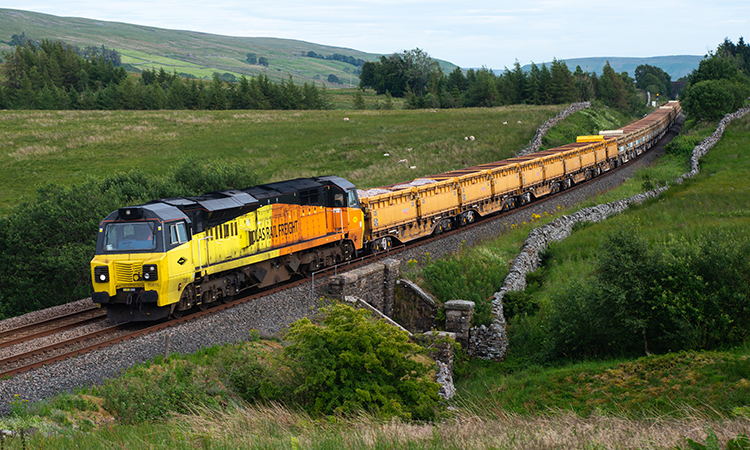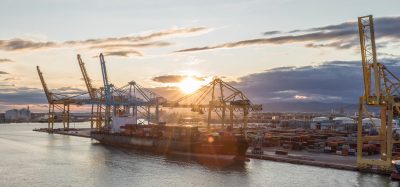What will HS2 mean for rail freight in Britain?
Posted: 29 October 2020 | Zoe McLernon | No comments yet
With the construction of HS2 now underway, Zoe McLernon, Multimodal Policy Manager at Logistics UK, explores how the development is set to impact rail freight and the steps that government can take to maximise the opportunities for the sector.


As anyone working within the rail sector will attest, Britain’s rail network is currently operating at full capacity for both the passenger and freight markets. The start of construction of HS2 – one of the largest infrastructure projects in Europe – represents a once-in-a-generation chance to make Britain’s transport network more sustainable. But, for the logistics industry to benefit from the project, the government must provide a cast-iron guarantee that freight services will have sufficient access to the released capacity that HS2 will provide; at Logistics UK, our support for the project is dependent on receiving this assurance.
Capacity constraints
…for the logistics industry to benefit from the project, the government must provide a cast-iron guarantee that freight services will have sufficient access to the released capacity that HS2 will provide…
The conventional rail network is at capacity and is no longer fit for purpose. There are almost half as many freight trains using the network as there were 15 years ago, as passenger services – which continue to grow steadily – take the lion share of the network; all too often, freight loses out to commuter and leisure services. Some may suggest that rail freight has become more efficient, contributing to the statistics, but passenger services often take precedence. This is especially concerning given that rail is the lowest polluting form of freight transportation and, as such, should be in line to play an integral role in the UK’s ambition to become a zero-emission economy by 2050. Enabling more freight to travel by rail will remove hundreds of thousands of lorries from the roads every year, reducing carbon emissions while improving air quality. In-depth forecasts prepared for the rail industry indicate that, if there was sufficient capacity to meet demand, then rail freight growth would be substantial; the central case forecasts an increase of 32 per cent in tonnes, with intermodal tonnes doubling.
Unlocking capacity
HS2 Phase One (London to West Midlands) – which is now under construction – will provide a dedicated route for long-distance passenger services between London, Birmingham and Handsacre, unlocking capacity on the existing West Coast Main Line (WCML). Phase Two will be delivered in two stages: HS2 Phase 2a (West Midlands to Crewe) and Phase 2b (Crewe to Manchester, and West Midlands to Leeds). Phase 2a will enable long-distance passenger services to operate over the dedicated high-speed line from London Euston to just south of Crewe. This could remove up to seven passenger trains per hour in each direction from the existing network between London and Crewe. As detailed in the Department for Transport’s (DfT) 2016 Rail Freight Strategy, opportunities will be created for 144 extra freight trains per day, which could carry over 2.5 million lorries’ worth of cargo each year. Transporting freight by rail rather than by road produces 76 per cent less CO2, contributing to decarbonisation targets.
By freeing up space on conventional lines, HS2 is, in the opinion of our members, the only opportunity this century to generate a substantial increase in capacity for rail freight in the UK.
By freeing up space on conventional lines, HS2 is, in the opinion of our members, the only opportunity this century to generate a substantial increase in capacity for rail freight in the UK. When Phase 1 and Phase 2a of HS2 become operational, it is estimated that the railway could attract approximately half the passengers who would otherwise use the WCML. We are urging the West Coast Partnership to welcome freight interests into its analysis and option development as the scheme progresses to allow rail freight operators access to the newly-available lines.
While the UK government’s principles for HS2 call for the provision of ‘potential capacity’ for freight, there is no policy or legal requirement that a proportion of released capacity must be allocated to freight. The freight community will, therefore, need to engage in the planning and timetable process to ensure current access rights are retained and to bid for further capacity. Logistics UK will seek to be at the forefront of these discussions as we urge government to pledge a clear and unequivocal commitment to grow rail freight as part of the development.
A nationwide programme of upgrades
Even if HS2 does release significant capacity for rail freight services, it should still only be considered as just one element of a nationwide strategy to upgrade the rail network. For example, we need to see upgrades to freight facilities on the TransPennine network, as this area is excluded from a broader programme of upgrades, which is a missed opportunity. We would also like to see the electrification of the network, so rail freight can become the first zero carbon freight mode, and the delivery of the Strategic Freight Network, which is a suite of projects aimed at unlocking freight capacity on the conventional network. Alongside the government, all parties should work cohesively to develop a fully national strategic freight network, with capacity released by HS2 at its core. As the UK transitions to a net-zero emission economy, rail will play a much larger role in logistics; the government must ensure that the framework is in place to enable this transition.
While HS2 presents an incredible opportunity for rail freight in the UK, the development will only be as valuable as the parties involved allow it to be, including the government, the West Coast Partnership and the Office of Rail and Road (ORR); at Logistics UK, we will continue to work closely with these groups to ensure that the project delivers the best possible outcome for logistics.
Logistics UK
Logistics UK (formerly FTA) is one of the UK’s leading business groups, representing logistics businesses which are vital to keeping the UK trading, and more than seven million people directly employed in the making, selling and moving of goods. With COVID-19, Brexit, new technology and other disruptive forces driving change in the way goods move across borders and through the supply chain, logistics has never been more important to UK plc. Logistics UK supports, shapes and stands up for safe and efficient logistics, and is the only business group which represents the whole industry, with members from the road, rail, sea and air industries, as well as the buyers of freight services, such as retailers and manufacturers, whose businesses depend on the efficient movement of goods. For more information about the organisation and its work, including its ground-breaking research into the impacts of COVID-19 on the whole supply chain, please visit the Logistics UK website.
Issue
Related topics
Cargo, Freight & Heavy-Haul, Electrification & Cabling, High Speed Two (HS2), High-Speed Rail, Infrastructure Developments, Operational Performance, Passenger Experience/Satisfaction, Sustainability/Decarbonisation
Related organisations
Department for Transport (DfT), HS2 Ltd (High Speed Two), Logistics UK, Office of Rail and Road (ORR)








